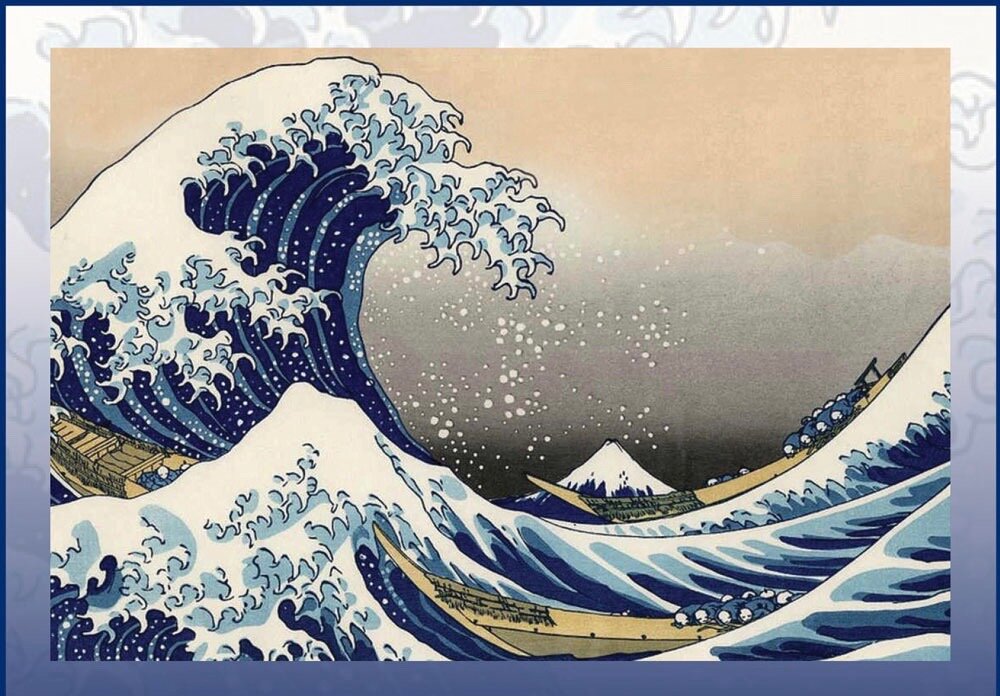Last week I wrote that the Buddha refused to be drawn into an argument among his monks aout his own teachings. Instead he asked them, when they were “arguing, quarreling, and fighting…etc.”, were they treating each other - their fellow spiritual companions - with kindness? Were they kind to each other with their actions, with their words, with their thoughts and feelings? Were they living according to the precepts they shared for moral behavior - not harming, not making false speech, not taking what is not freely offered, etc.? Were they sharing whatever material goods they had - in this case, the contents of their alms bowls, their food for the day - with each other? Were they living their lives according to Right or Wise view (the Four Noble Truths)?
The Buddha taught that wise living starts with Right or Wise View. If our umbrella perception of the world is incorrect, misguided, false, tinged with greed, hatred or delusion, all of our thoughts, speech, actions will be tainted as well. And yet the hardest thing to change is Wrong View. Sometimes our deeply ingrained wrong view is self-doubt or self-hatred. We could search the whole world over and not find anyone more deserving of our love than ourselves.
But there are times and this one seems to be among those times when a core value is at stake and we have real and seemingly solid disagreements with people and are convinced that we are right, that our point of view is more accurate, true, aligned with reality and that the opposing viewpoints are based less on fact. And sometimes, perhaps often, we feel somewhat hopeless about making any headway with anyone in this disagreement.
After his enlightenment, the Buddha felt much the same way. "For several weeks the newly awakened Buddha remained in the vicinity of the Bodhi Tree contemplating from different angles the Dhamma, the truth he had discovered. Then he came to a new crossroad in his spiritual career: Was he to teach, to try to share his realization with others, or should he instead remain quietly in the forest, enjoying the bliss of liberation alone?
At first his mind inclined to keeping quiet; for he thought the truth he had realized was just too deep for others to understand, too difficult to express in words, and he was concerned he would just weary himself trying to convey his realization to others.”
What changed his mind was the intervention "of a high deity named Brahma Sahampati, the Lord of a Thousand Worlds, (who) realized that if the Master remained silent the world would be lost, deprived of the stainless path to deliverance from suffering. Therefore he descended to earth, bowed down low before the Enlightened One, and humbly pleaded with him to teach the Dhamma "for the sake of those with little dust in their eyes.”” https://www.accesstoinsight.org/lib/authors/bodhi/wheel433.html
Setting aside the high deity aspect of this, the lesson from this wise Brahman was clear. There are people with “little dust in their eyes” who can understand the dharma, who can realize awakening and liberation, and who can go on to teach others.
This is true for us as well. The teaching is not saying to take on the more deeply entrenched of those we disagree with but to find those with “little dust in their eyes” and start a kind and loving conversation with them. Perhaps sharing a meal or extended some kindness to a neighbor or friend or family member would be a great vessel for the conversation. Or perhaps in our modern world, it’s identifying those farther away with whom we basically agree but who are not as inclined to action to support our common cause.
Democracy is just such a cause. We have heard again and again this week since Memorial Day the price in chaos, lives lost, and suffering that has been paid to gain and regain a system of government that continually attempts to put the power in the hands of the largest number of people within the borders of that country.
So I’m reminded and heartened that we don’t have to convince the seemingly unconvincible. We may not be the people to do that - because they may not be able to hear us and we might not be able to hear them. But someone else might be just the voice they need to hear, might be just the ear they need to talk to. And that someone else might be convinced by someone else they listened to who was convinced by talking and listening to us.
The Buddha went back to his fellow ascetics who had given up on him when he decided to eat to sustain his health and strength to find the path to freedom from suffering. They scoffed at him but were impressed by his calm appearance, an inner glow. They sat and listened to his teachings and were enlightened and the wheel of the dharma began to turn.
I have heard that when the people of Burma were overtaken by the military coup that changed their name to Myanmar, their biggest concern was that the teachings and practice of the dharma not die out. They made other compromises to save the dharma.
Every generation eventually has to take up the effort to learn, practice, and perpetuate that which we value the most, that which leads us to freedom internally and externally. The Buddha’s teachings have lasted over 2500 years, have been pushed out of their country of origin or subsumed by a competing belief system, have travelled from country to country through the dedication of enlightened beings, have adapted to the different cultures and found ways to touch the hearts of new generations and thrive.
But the idea, the teachings, need to be strong, and perhaps need to be purified and re-interpreted to able to cut through the clutter of another time.

